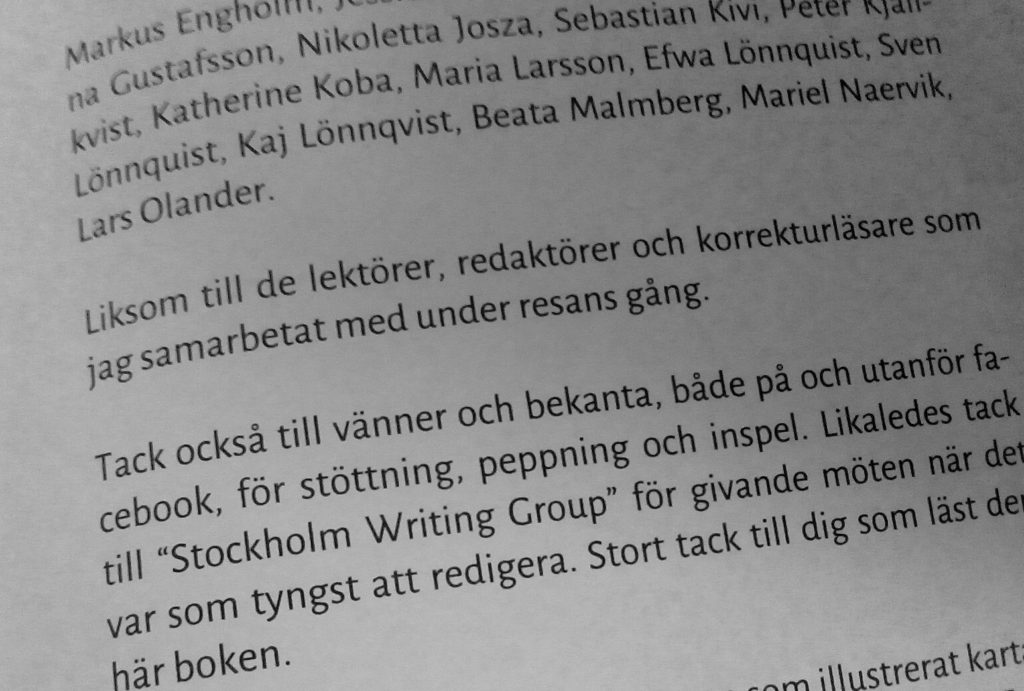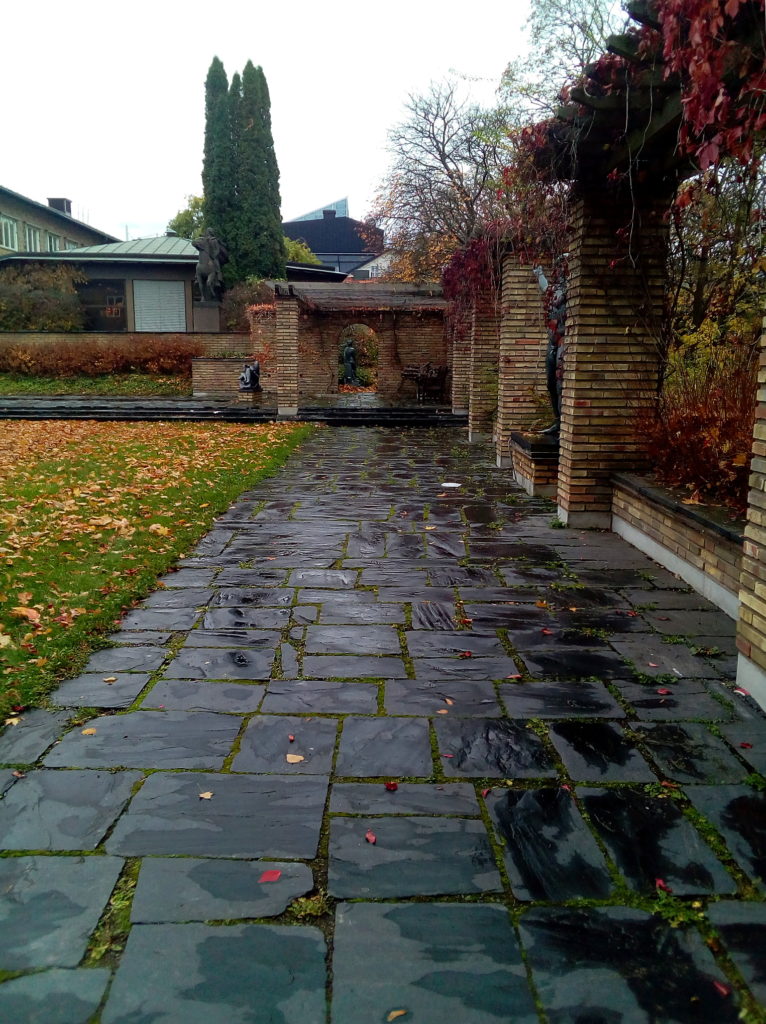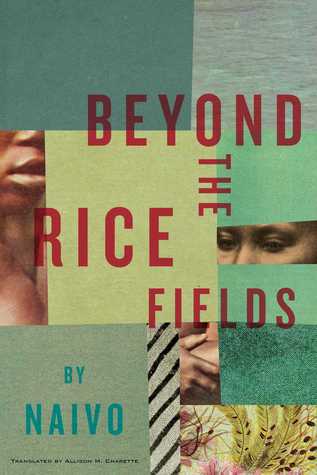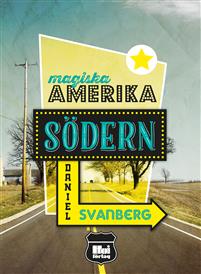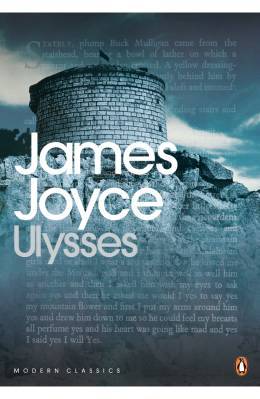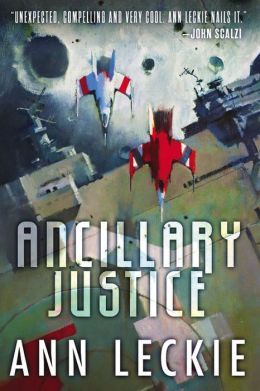I try to make a point of reading Swedish magazines and journals when I can. Sometimes I only have the brain power to focus on something short and article-length, and it’s good to mix up my literary fiction reading with popular non-fiction.
One of the unintended benefits of this project is that I’ve collected numerous tips on Swedish authors to read. Historiskan always profiles an author or two in every issue, and Populär Historia put out a special issue earlier this year, dedicated to “pioneering women,” that was chock full of writers (or women who did exciting things and also happened to write about it). I have a list in my phone of all the names that have turned up so far in my reading, and if I find myself at the library without another book to get, I see if I can find what’s there.
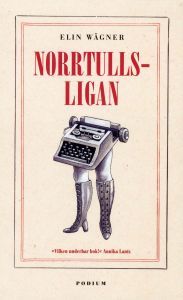
Author: Elin Wägner
My GoodReads rating: 4 stars
Average GoodReads rating: 3.65 stars
Language scaling: N/A (read in Swedish; available in English as Men and Other Misfortunes in a collection entitled Stockholm Stories, translated by Betty Cain and Ulla Sweedler)
Summary: The daily struggles of four working-class women who share an apartment in Stockholm at the turn of the last century.
Recommended audience: People who liked the concept of Lena Dunham’s Girls but found the actual execution unappealing
In-depth thoughts: I didn’t remember much about Wägner when I checked this book out from the library, except that she was a suffragette and her name was on my list. But I did remember this photograph of her:
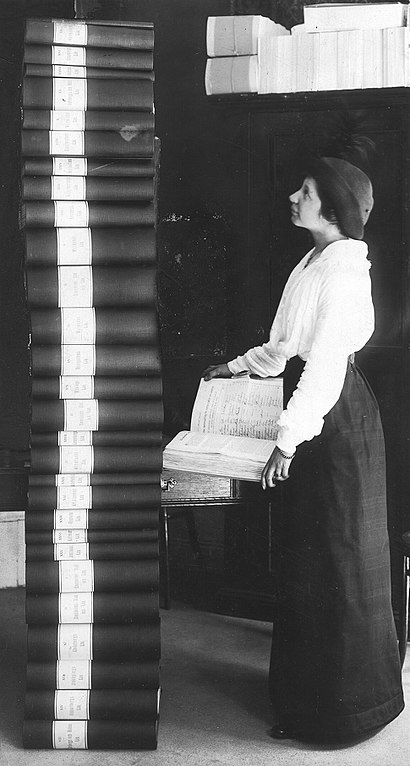
At the turn of the last century, there was something of a mass exodus of young women from the Swedish countryside into larger cities, leading to a social phenomenon of young women who could (more or less) support themselves and therefore weren’t as desperate to marry as they would have been in previous generations. Norrtullsligan is a quick survey of daily life of four of those women (the “league” referred to in the title). The day’s media addressed this civilization-ending phenomenon with the same breathless pearl-clutching that today’s media uses with Millenials, making Norrtullsligan something like the Swedish 1900s version of Girls. Except better.
The league (Baby, Eva, Emmy, and the narrator, Elisabeth) takes on headier issues of suffrage and worker’s rights while also dodging everyday headaches like insufferable relatives, sexual harassment from bosses, and heartache. Nonetheless, Norrtullsligan avoids being didactic and moralizing. The social commentary springs organically from the women’s lives and situations, rather than dictating plot points. Wägner’s prose is also a delight: 100 years old and somehow still fresh and contemporary in tone. Elisabeth is the best kind of narrator, wry and witty and ironic but with plenty of compassion. It’s a short book that reads quickly, yet still manages to address a wide range of larger issues. It’s like an explicitly feminist and infinitely more cheerful Doktor Glas.
The English translation is available on Google Books if you’d like a preview. I’m not entirely sold on it myself, though I appreciate the work that Cain and Sweedler did in bringing Norrtullsligan to the wider English-speaking world: Stockholm Stories is available via Xlibris, a self-publishing company, meaning that they probably invested a great deal of their own money into making it available. Something about the English translation, however, falls a little flat for me. Swedish speakers, even if non-native, would do better to just read the original.


